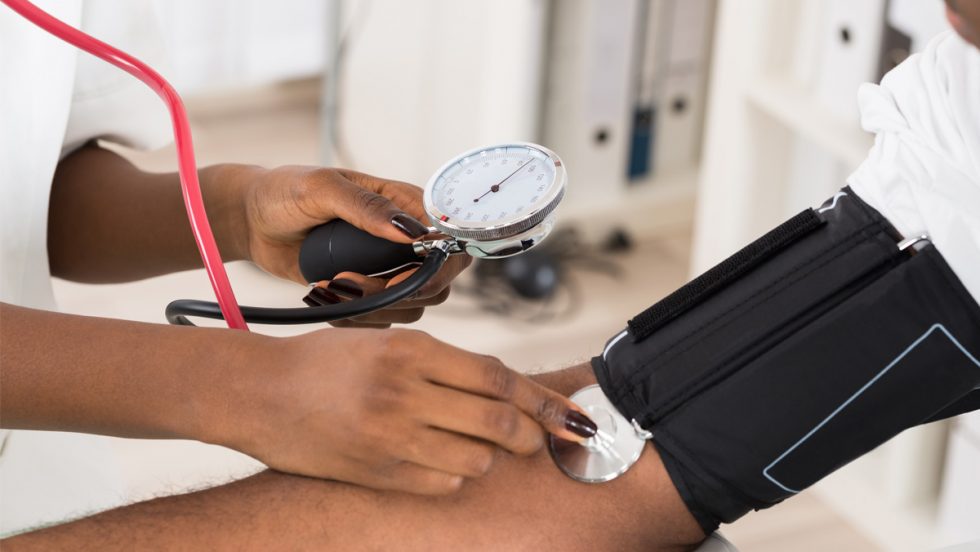13.8 million Lagosians are living with hypertension, diabetes, obesity – Report

Around 13.8 million Lagosians are living with hypertension, diabetes, and obesity, according to new Lagos State government data.
Hypertension affects 8.67 million people, with over 6 million unaware.
Obesity impacts 3.48 million, and diabetes affects 1.73 million, half of whom are unaware and undiagnosed.
To tackle these silent killers, the Nigeria Governors’ Forum has launched a free state-wide screening program. The Federal Ministry of Health also aims to screen 10 million Nigerians for diabetes and hypertension from October 28 to November 3.
Understanding the silent killers
Prof. Akin Abayomi, the State Commissioner for Health on Friday during a recent presentation, said the campaign tagged: “Know Your Numbers, Control Your Numbers” will screen 800,000 Lagosians within the one-week window.
- Abayomi highlighted the severity of what he termed the “silent killers”: diabetes, obesity, and hypertension. These conditions frequently develop without noticeable symptoms, silently damaging vital organs such as the heart, kidneys, and eyes. “Though they may seem benign at first, they can cause catastrophic health issues,” he warned.
- He said this campaign represents a powerful effort in the fight against hypertension and diabetes, which often go undiagnosed until severe complications arise, “I urged residents to participate actively in the campaign to understand and manage their health.”
High prevalence rates
During his presentation, Prof. Abayomi explained that a significant portion of the city’s 30 million residents’ population are living with hypertension, diabetes, and obesity—yet many remain unaware of their dire situations.
- “With a hypertension prevalence rate of 30%, around 8.67 million people are impacted, and alarmingly, 70% of them are unaware of their status.
- “Hypertension is a leading cause of heart disease, strokes, and kidney failure, making this lack of awareness particularly perilous,” he noted.
- Obesity, a major contributor to both hypertension and diabetes, affects 3.48 million Lagosians (about 12% of the population).
Prof. Abayomi cited the rise in sedentary lifestyles and poor dietary habits as exacerbating factors, with obesity increasing the risk of life-threatening diseases.
Diabetes risk and symptoms
Diabetes is another pressing health issue, with a prevalence rate of 6% among Lagosians—translating to 1.73 million residents. Shockingly, about 50% of these individuals are unaware of their condition.
- Abayomi cautioned that untreated diabetes can lead to severe complications, including blindness and cardiovascular diseases.
He outlined common symptoms of diabetes, such as constant thirst, frequent urination, fatigue, and slow-healing wounds. Hypertension often goes unnoticed until it presents with symptoms like headaches, dizziness, or chest pain. “These silent killers can lead to critical health crises if left unchecked,” he warned.
To promote accessible healthcare, the Lagos State Government, through its Ilera Eko Health Insurance Scheme, offers subscribers annual check-ups for hypertension and diabetes as part of the standard premium package.
“We aim to eliminate barriers to regular health checks,” Prof. Abayomi stated, stressing that early diagnosis and lifestyle changes can mitigate long-term health issues.
During the campaign week, Lagosians are invited to visit any of the state’s 300 primary health centers and 30 general hospitals for free screenings. Tests for blood pressure, blood sugar, and BMI calculations will be provided, helping citizens understand and manage their health better.
Recently, in August 2024, 14 African countries, including Nigeria, pledged over $45 million during the World Health Organization WHO’s first-ever Investment Round to generate sustainable financing for key health initiatives, which includes combating non-communicable diseases (NCDs) like hypertension, diabetes, and obesity.
Health experts has stressed the importance of both medical check-ups and lifestyle changes to combat these silent killers. “Exercise, reducing salt intake, and avoiding smoking and excessive alcohol consumption are crucial. Weight loss can also significantly lower blood pressure. For those diagnosed with hypertension, consistent medication use is essential to prevent complications.”



